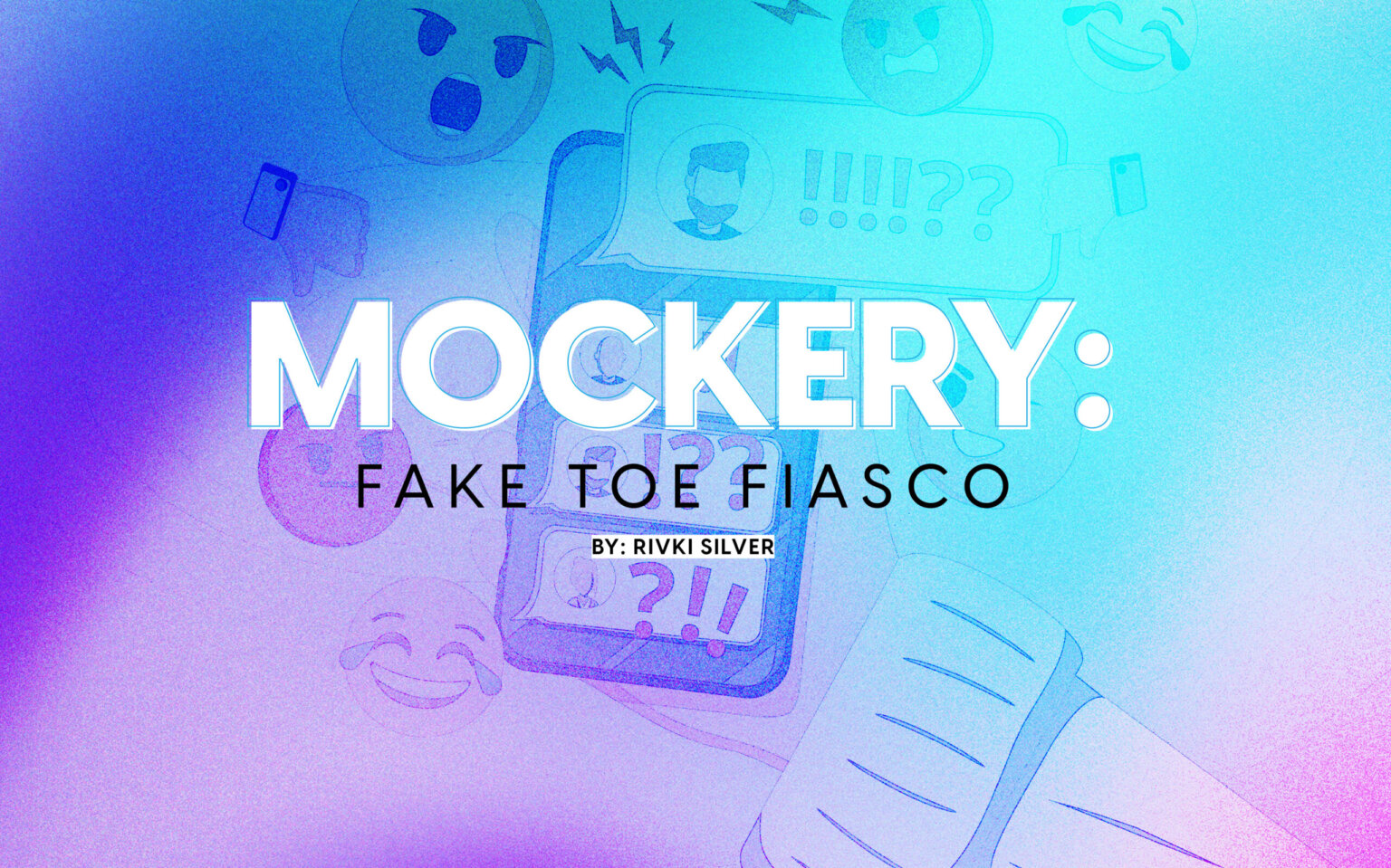



 November 29, 2022
November 29, 2022 
By: Rivki Silver
Toes. How offensive can they be? How funny can they be? The online Jewish community had some experience with toes these past couple of weeks through the now infamous Fake Toe Flier. Maybe we should call it the Fake Toe Fiasco.
In case you missed it (I’m jealous if you did), there was a flier being passed around featuring an image of prosthetic toes with the text: “Attention Bnos Yisrael: do you want to be fashionable and yet still be tzniyusdig? Do you want to look stylish but would never c”v wear open toed shoes? Now available: Prosthetic toes for open toes shoes. Be in style but still be in Hashem’s favor. Slip the high quality durable silicone toes over your own and you’re good to go.” There was a phone number included to make an order with the disclaimer “No texting.”
The majority of reactions to this were incredulity, disgust, and horror. Some people were laughing at the ridiculousness of it, but mostly the responses I saw were along the lines of: “This can’t be real – is it real?”
By now, we know that it was all a joke, just a piece of satire that happened to go viral. Satire can be very effective, and poking fun at ourselves is good and even necessary. This is one reason why we love comics like the Kichels so much. They gently remind us of our own ridiculousness week after week and do it so well.
Humor is valued in Judaism. Before Rabbah would teach halacha, he would first say something humorous that would put his students in the right mindset to learn Torah. The Gemara tells of two comics who merited a place in the World to Come because of their use of humor to cheer up depressed people. When we poke fun at ourselves, we remember not to take ourselves too seriously, which can prompt self-reflection and growth.
But was this flier actually humorous? Did it make people laugh? Or did it cause more distress and concern than chuckles and smiles?
Self-deprecating humor is one thing, but when we ridicule other people, it’s not funny. It’s upsetting. When humor is used to denigrate, to evoke feelings of hatred or disgust for other Jews, it is an abuse of the power of humor. What good was done here? Did it bring levity and light into the world? Did it prompt people to genuinely reflect on how tznius is represented in their life or community? Did it do anything besides get a few giggles from some people and prompt outrage in many more?
In an article published in the Times of Israel, the women who created the toe flier claimed that it should have been obvious that it wasn’t real. Well, it obviously wasn’t obvious to a lot of people. If you have to explain the joke, that means it’s not funny.
In this digital era where we are all connected without being in physical proximity, it’s easy to hear about something happening “over there” by “those people” and immediately slip into judgment. Oh, that’s so crazy, that’s so extreme. Well, I have news for you. No matter where you fall on the spectrum of observance, there’s probably someone out there who thinks you’re taking things too far.
But there are more questions we need to ask ourselves in the wake of this brouhaha: Why are we so eager to share these things? What are we hoping to accomplish by posting them to our chats? What kind of conversations do we imagine will come from these things? If we find it repellent, why are we so eager to spread it around, to revel in the horror of extremism? To highlight that somewhere, some of our fellow Jews are taking some point of observance too far?
Are there not enough genuine horrors going on in the frum world that we have to invent new scandals? Don’t we already have enough troubles and problems to cry about?
I am far more bothered by the creation and proliferation of this attempt to be clever than the absurd idea of women covering their toes with prosthetics. When mockery is used, ostensibly, as an attempt to counteract extremism, it runs the risk of having that mockery extend to those who are genuine in their efforts to grow in their observance. And that’s no laughing matter.